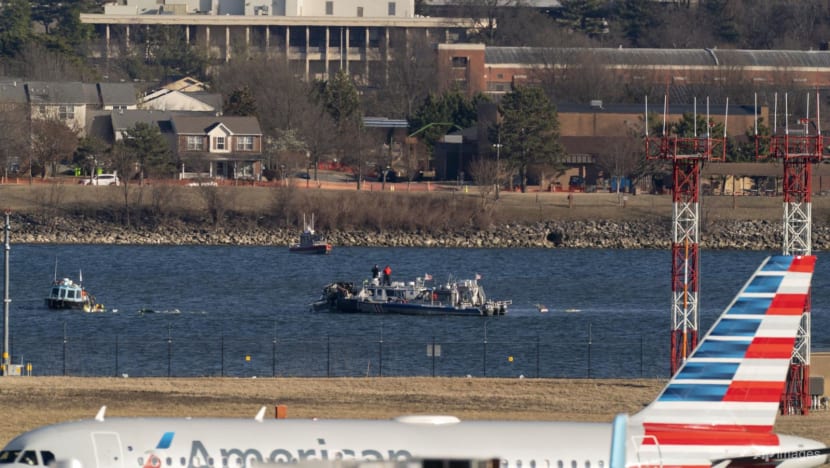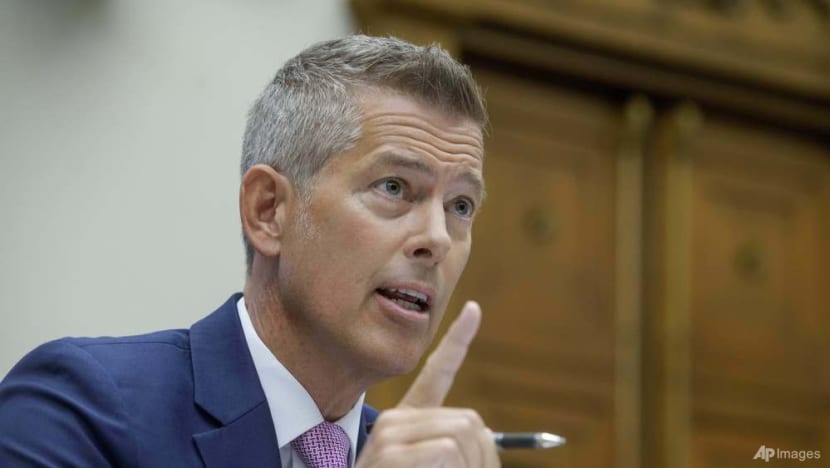Trump administration seeks extra US$19 billion to overhaul air traffic control

Police and coast guard boats are seen around a wreckage site in the Potomac River as an American Airlines plane passes in the foreground at Ronald Reagan Washington National Airport, on Feb 1, 2025. (Photo: AP/Jose Luis Magana)
WASHINGTON: The Trump administration has asked Congress to approve an additional US$19 billion to fully modernise the United States' ageing air traffic control system, bringing the total cost of the overhaul to US$31.5 billion.
US Transportation Secretary Sean Duffy made the request on Wednesday (Jul 16) at a House Transportation and Infrastructure Committee hearing, where he said the administration had the support of airlines and other aviation stakeholders.
"We are going to need more money from the Congress," Duffy said. "We’re talking US$31.5 billion to do the full project."
NEAR-MISSES AND DEADLY CRASH SPUR PUSH
Concerns over the Federal Aviation Administration’s (FAA) outdated systems have been rising amid a series of high-profile incidents, including near-collisions and a January crash involving a US Army helicopter and a regional American Airlines jet that killed 67 people.
The US$12.5 billion already approved earlier this month includes US$2 billion for the first new en-route air traffic centre since the 1960s. The administration plans to name a private company to help manage the modernisation, with firms such as Raytheon and IBM under consideration, according to President Donald Trump.

TECHNOLOGY AND STAFFING UPGRADES PLANNED
The Department of Transportation aims to replace 618 radar systems, install anti-collision tarmac technology at 200 airports, upgrade telecommunications networks and rebuild towers and other facilities.
The plan also includes new hiring and retention incentives to address staffing shortfalls. The FAA is currently 3,500 air traffic controllers below its target.
A recent report by the National Academies of Sciences found that overtime hours logged by FAA air traffic staff had surged, with 2.2 million hours recorded in 2024 alone. The agency spent US$200 million on overtime pay that year, up more than 300 percent since 2013.
Duffy said a key priority is securing funding for equipment to prevent runway incursions and to stabilise the workforce managing US skies.















